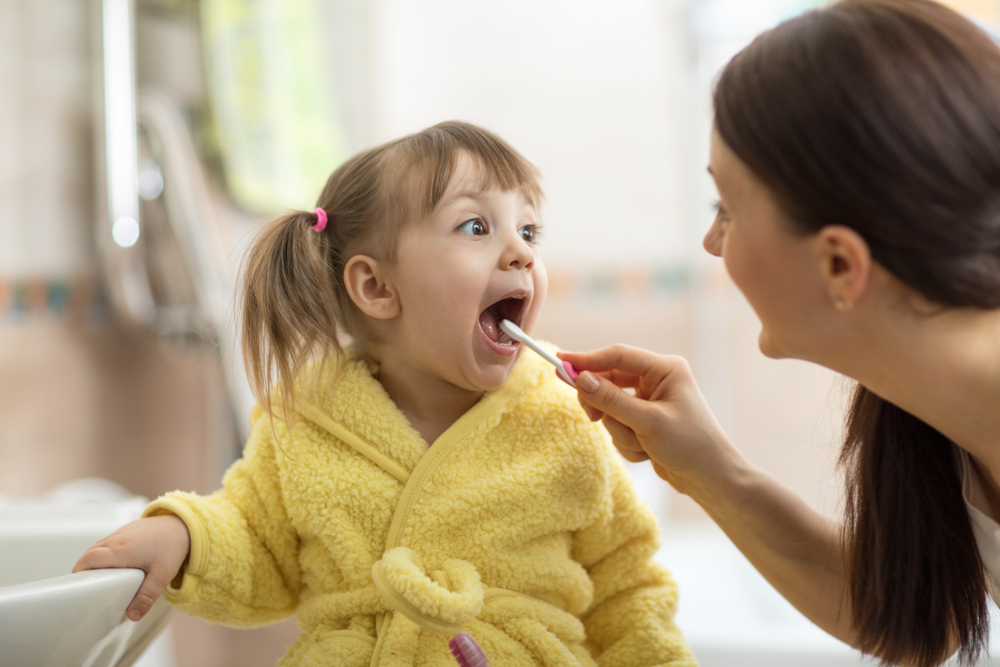Many children just don’t like brushing their teeth, whether it’s because of the time it takes or the taste of the toothpaste. However, oral hygiene is still very important for children to learn at a young age. So how do we teach them to clean their teeth properly, if it seems like a struggle to get them to do it in the first place?
1. Start Teaching Early
You should begin cleaning your child’s teeth from their very first tooth, and their first dentist’s appointment should be scheduled by the time they are a year old, dentists in Calgary suggest.
Keep the dental hygiene routine consistent through their entire life. You should brush and floss their teeth for them until they are old enough to handle it themselves, and by that time, they should already have seen the example you set for them in their early childhood.
Making sure you brush their teeth and allowing them to see you how you brush your own teeth will make your child aware of their oral hygiene at an early age.
2. Let Your Child Pick Their Toothbrush
The easiest way to get a child to learn something is to make it fun. Letting your child pick their own toothbrush allows them to both have their preferred characters designs on their toothbrush and demonstrate agency in their own life. The excitement of seeing the toothbrush they picked will make any brushing and flossing session exciting for them.
3. Let Your Child Have Fun While They Brush
Make your dental hygiene routine an event for your child to look forward too. Play a song that you and your child both like to listen to, so you can keep the brushing time consistent. Dance along with the music safely (no jumping or running with the toothbrush in your mouth, of course).
You can also participate in fun games for your child to get excited about brushing, like:
- When it’s time for your child to brush their teeth, pretend to brush their other body parts instead. This will make them laugh and correct you, so they can help you with brushing their teeth instead.
- Have your child brush their stuffed animals’ teeth to show them proper brushing. You can give their dolls funny voices or have them react differently to the toothbrush. Make sure to affirm your child when they brush their dolls’ teeth correctly!
- Give your child points for each section of their mouth they brush, with different point values for each section. This will make them feel like they are making tangible progress, like in a video game or a board game.
4. Brush and Floss Your Teeth Together with Your Child
Children will learn many things by example; let your child’s dental hygiene be one of them. Include your child in your own brushing schedule, and they will be able to see how it’s done properly, rather than just being told about it.
Emphasise that brushing and flossing every day is important for everyone, and it is a part of everyone’s routine. Your child will also enjoy the quality time they get to spend with their loved ones!
5. Let Your Child Know Why They’re Doing It
Many children get in the habit of asking “Why?” from a very early age. Their curious nature may seem overwhelming at times, but educating your child on the importance of oral hygiene can make them more likely to take care of their teeth properly.
Let them know that teeth can get dirty, like any other part of the body. They should know that when they brush their teeth, they are fighting bacteria that can make their gums hurt or even bleed. Keeping their teeth clean can lead to a happier and healthier life.

